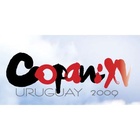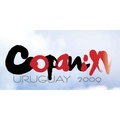Part 1 >>
HOW DID A NIKKEI COME TO GOVERN A COUNTRY?
In Peru an extradordinary thing happened. A Nikkei, or should we say a Nisei (a child of Japanese parents), came to occupy the presidency of the country by a majority vote of the population. And even more extraordinary was that such a thing occurred less than fifty years after Peru declared war against Japan.
Japanese immigrants always tried to live immersed in the middle of their communities and dedicate themselves to providing a good education to their children, while trying to preserve traditional values and Japanese culture.
When World War II started (and with it an anti-Japanese climate), reputation and economic success turned into dangerous points that could land you in some concentration camp. Again, the Japanese community was obliged to withdraw from society.
When the war ended, the Nisei generation continued to maintain a low profile –either because of its own experience or by recommendation of their parents.
The Nikkei community has always maintained an ambiguous relationship with integration (into the larger society) as well as distance from their fellow Peruvians. This strategy of survival demonstrates the ability of the Nikkei to maintain their strong attachment to Peru but without abandoning their Japanese roots.
Although Fujimori initially planned to run for a seat in the Senate, political circumstances at the moment allowed this unknown university professor to become a candidate for the presidency of the republic.
The Peruvian Nikkei were nervous about the possibility of a Fujimori presidency because memories of the Second World War were still fresh in their minds, including the images of persecution of the Japanese community there.
Their fears were partly realized between April and June 1990 when Peru witnessed an explosive polarization of the electorate that combined ideological, political, racial, and even religious elements.
When it was clear that Fujimori qualified for the run-off election, and with a strong possibility of winning the election, the Nikkei community’s negative perception was gradually changed.
Great uncertainty remained, however, particularly the question of whether a man with neither political experience nor solid political organization to support him was capable of forming and running a government. Peru was experiencing one of the worst moments in its history, with an economic downturn fueled by high inflation and two violent terrorist movements.
In the beginning Fujimori turned to family members, personal friends, school chums, and university classmates to govern. Among them many Nikkei were called to take on positions of great responsibility, such as directors of public entities, ministries, members of the legislature, ambassadors, etc.
Fujimori governed from 1990 until 2000. During those years, he defeated terrorism, reinstated Peru in the good graces of the international financial community, combated inflation, and cultivated the basis for economic development. He also signed a peace accord with Ecuador and a peace treaty with Chile, sponsored the construction of numerous schools in poorer areas, and personally directed the successful liberation of the hostages from the Japanese ambassador’s residence.
In short, Fujimori and his administration were successful despite the terrible state of affairs when he took office in 1990. Today, Peruvians look back with sympathy and admiration at his efforts during his ten years in office, to such a degree that his daughter, Keiko, is a potential candidate for the presidency in the election that will be held in two years. Right now she is ahead in the polls, with the possibility of receiving more votes in the election than the maintream candidates.
If Keiko is elected president of Peru, she will have capitalizad on her father’s good image much in the same manner as her father knew how to capitalize on the good image of the Nikkei as honest, hard working, and humble people. Fujimori’s slogan for his presidential campaign was honesty, technology, and work.
THE DEKASEGI PHENOMENON AND ITS CONSEQUENECES FOR THE COMMUNITY
The dekasegi phenomenon emerged toward the end of the 1980s with the change in legislation affecting Japanese immigration, which essentially allowed Japanese descendants to petition for work visas.
According to records from Japan’s Department of Migration, in 2007 there were little more than two million registered foreigners. Koreans and Chinese were the most numerous with approximately 600,000 for each group, followed by Brazilians with 300,000, Filipinos with 200,000, and Peruvians with approximately 60,000. This means that Peruvians represent 3% of all foreigners.
It is estimated that of the 60,000 Peruvians who live in Japan, around 25,000 are Nikkei. If, as it is said, the Peruvian Nikkei community consists of 80,000 persons, then almost a third of the community lives today in Japan.
The impact that the dekasegi phenomenon has had on the Japanese community in Peru is enormous. It is difficult to measure the consequences of this massive Nikkei migration, but it is evident that families and institutions are the ones that have suffered the most.
Economically speaking, the Peruvian Nikkei community has benefited from the remittances that come from Japan, but socially there are big problems. Among them is the disintegration of families and poor educational opportunities for the children.
The first dekasegis have been living away from their country for over twenty years. Many of them have benefited from good economic times and have been able to consolidate within Japan, buying houses, cars, starting their own businesses, etc. They are not really dekasegis but rather immigrants who have been able to integrate into society, much like what happened in Peru 110 years ago.
Nevertheless, those who have been unable to learn the language and who have not saved enough money during economic crises are suffering terribly and are unsure if they should return to Peru or sacrifice and wait until the Japanese economy recovers. Japan has been one of the countries most affected by the international financial crisis, with an unemployment rate that is near a record high of 6%.
Perhaps the majority of the dekasegis will decide to remain in Japan, especially those who have their paperwork in order (visas, work permits, etc.), but meanwhile their savings are dwindling, which forces them to withdraw their children from school and sell off the things that they bought with their hard earned money.
FINAL REFLECTIONS
A person’s character and values change and adapt over time, reflecting the influence of the middle ground where they live and also of the events that occur in certain circumstances.
Events affect every human group. In the case of the Japanese communities located in the western hemipshere, there have been events and circumstances that affected one community from another in some distinct form and fashion. These differences are well known among the Nikkei communities located in the northern hemisphere as well as those located in the southern hemisphere.
In the case of the Peruvian Nikkei community, we can emphasize the following significant facts that have occured over the past 110 years, which is to say, since the arrival of the first immigrants, as well as those facts that have had an impact on the development of their communities:
a) the shortages and vicissitudes of the first immigrants, their frustrated return to Japan, and the difficult decision to transform from dekasegi to immigrant.
b) the effects of World War II, including deportation, racial discrimination, confiscation of property, and the trauma of displacement.
c) the Fujimori phenomenon that opened the doors to Nikkei participation in politics and national public life; the phenomenon also provided Peruvian society with a new way of looking at the Nikkei.
d) the dekasegi phenomenon that caused the uprooting of families, the problem of educating their children, high unemployment as a result of the global financial crisis, and the dilemma facing these unemployed folks of whether or not to return to Peru.
Important facts make people change and, therefore, make societies change. We also can say that people change because their values have changed. If such things are true, we can ask ourselves the following questions:
1) Have there been changes in the Peruvian Nikkeis’ values, or are the values the same as those inculcated by our elders?
2) Are we on the path that is more individualistic rather than one that embraces solidarity and unity, as our ancestors had taken?
3) What will the future hold for Nikkei families and their institutions should the dekasegis decide to return to Peru or stay behind in Japan?
4) In what manner will the process of integration and racial mixing affect the Peruvian Nikkei?
I hope that in this forum we can find the answers to these crucial questions in order to anticipate what the future will hold for the Nikkei community in Peru, and if it will produce some kind of transformation that we cannot see today.
* The above article is the result of the discussions that took place at the session “Nikkei Diaspora: Nikkei Migration in the Global Society” in the workshop organized by Discover Nikkei at the XV COPANI, held in September 18 in Montevideo, Uruguay.
© 2009 Luis Hirata Mishima




